
Why you shouldn’t take melatonin to sleep
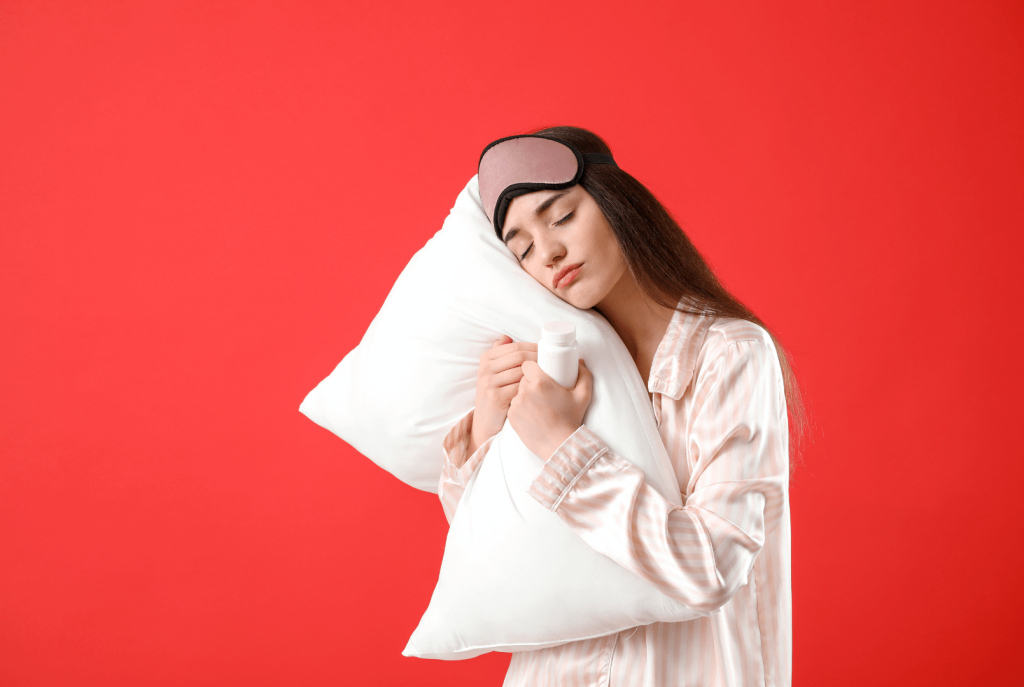

Why you shouldn’t take melatonin to sleep
“Is taking melatonin every once in a while a problem for adjusting to jet lag, etc.? Probably not. I would even say no. But taking it chronically over time, especially kids taking it chronically over time, can potentially be problematic.” – Dr. Andrew Huberman, neuroscientist and Professor at Stanford University School of Medicine.
What Exactly Is Melatonin And How Do We Produce It?
You already know that melatonin helps sleep, but did you know it’s a hormone? Your body makes it in response to darkness, mainly in the pineal gland and some in your retina, skin, and bone marrow.
Melatonin production involves multiple steps when triggered by norepinephrine. It begins with tryptophan (the amino acid you get from turkey). After converting into the chemical compound oxitriptan, tryptophan converts into serotonin, and two enzymes catalyze serotonin into melatonin. Melatonin is quickly metabolized in the liver and leaves your body through your urine.
Darkness stimulates melatonin production, and light hinders it. Your pineal gland receives light cues through the photoreceptors in your retina via the hypothalamus. When it’s dark, photoreceptors release norepinephrine to activate melatonin production. In daylight, photoreceptors prevent norepinephrine’s release, thereby preventing melatonin’s release.

Melatonin doesn’t actually make you sleep. Instead, it eases you into a state of quiet wakefulness and helps regulate your circadian rhythm. Melatonin levels naturally peak around 2 to 4 am and slowly decrease into the early morning hours.
Your circadian rhythm is unique to you. If you’re an “early bird,” your natural circadian rhythm is different from someone who is a “night owl.”
Melatonin Safety And Tolerance
Melatonin is generally considered safe. In a meta-analysis of fifty studies, just over half of the studies reported at least one adverse event. However, these events were minor and short-lived. The most common complaints were fatigue, mood disturbance, and impaired cognitive function and coordination.
Appropriately timing when you take melatonin can often correct minor adverse effects of melatonin. You should generally take melatonin in line with your natural circadian rhythm.
Dosage
Our bodies naturally produce around 0.3 mg of melatonin, but when individuals supplement with melatonin, they often take a larger dose. Melatonin supplements can range from 1 – 20 mg. You may think a larger dose means better sleep, but that’s not how melatonin works. It’s actually better to stick to a lower dose closer to your natural production.
In a placebo-controlled study of 27 adults complaining of insomnia, one group received 0.4 mg of melatonin while the other groups received either a placebo or 4.0 mg of melatonin. Both groups broke down melatonin and cleared it out of the body at roughly the same rate. The high-dose group, however, maintained melatonin levels for an average of 10 hours, which is beyond the usual sleep time. This could lead to drowsiness during daytime hours and disrupt function.
Taking more than 10 mg of melatonin increases the likelihood of headaches, dizziness, and drowsiness. A meta-analysis of studies examined 79 studies with a total of 3,861 participants. Participants taking a high dose of melatonin did not experience an increase in serious adverse effects. While this is positive news, the study also found that those who took a high dose experienced more headaches, dizziness, and drowsiness. Therefore, it’s better to stick to lower doses of melatonin if you choose to take it.
Tolerance
So, now you know that taking melatonin should be at a dose that’s closer to what your body naturally produces, but can you develop a tolerance over time? The answer is not quite.
A meta-analysis of 19 studies including 1,683 subjects examined the relationship between melatonin dosage and how quickly participants fell asleep and stayed asleep. Studies included in the analysis lasted between seven days and 182 days. Longer studies and higher melatonin doses resulted in faster sleep onset and longer sleep duration. Therefore, this suggests that the body does not build a tolerance to melatonin over time.
There are, however, documented cases when individuals stopped responding to melatonin supplementation. In a study of two females and one male (ages 61, 6, and 3, respectively), all subjects had chronic insomnia, late melatonin release, and mild intellectual disability. After no longer responding to 4 weeks of successful melatonin treatment for sleep, scientists stopped all supplementation for three weeks.
The three study participants metabolized melatonin more slowly than a control group of long-term melatonin users. At higher melatonin doses, the participants could not break down the melatonin quickly enough for the following dose to increase melatonin levels again. When resuming treatment at a considerably lower dose closer to natural melatonin, participants no longer experienced sleep problems.
So, while you cannot develop a tolerance to melatonin, how your body metabolizes it can alter how effective it is for you.
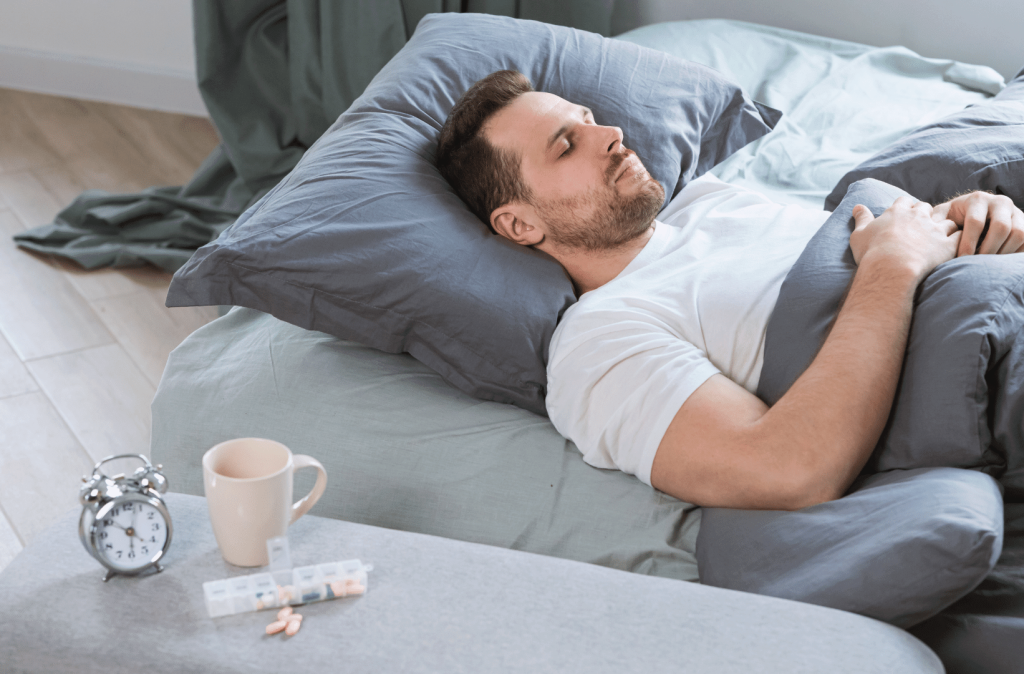
Melatonin As An Antioxidant
While melatonin is widely known as a sleep aid, you should not ignore its role as an antioxidant in preventing cell damage. It’s 100x more potent than vitamin E.
Melatonin scavenges the body for free radicals and can control oxidative damage. It’s also both fat and water-soluble, so it can easily pass through cell membranes and be present throughout the body.
Your mitochondria, or your cells’ energy center, contain high melatonin levels. Your mitochondria also happen to be the same place in your body that produces the highest amount of free radicals during metabolism. This allows melatonin to stop free radicals in their tracks and prevent damage to nearby cells.
A meta-analysis of 16 articles examined the relationship between melatonin supplementation and total antioxidant capacity. When given doses ranging from 3 mg to 400 mg daily, melatonin significantly increased antioxidant capacity in blood serum, indicating that melatonin acts as an antioxidant.
In an animal study comparing melatonin and vitamin E, melatonin was the winner. While both melatonin and vitamin E decreased malondialdehyde (MDA), a toxic molecule, melatonin lowered MDA levels more and was more potent. Only .1 mg of melatonin produced the same effects as 100 mg of vitamin E. This makes melatonin 100 times more potent than vitamin E.
Not only is melatonin an antioxidant on its own, but it also increases the activity of antioxidant enzymes. In an animal study, rabbits took either melatonin or saline. Rabbits that received melatonin had higher antioxidant enzyme activities in their internal organs. Therefore, melatonin supercharges our own cellular antioxidant enzymes.
Melatonin performs where other well-known antioxidants like vitamins A, C, and E do not. We know that oxidative stress can lead to the development of metabolic diseases such as type 2 diabetes and obesity. When essential molecules oxidize, a highly reactive oxidant called peroxynitrite forms and leads to chronic inflammation. Melatonin, however, can act against the cellular toxicity that peroxynitrite creates.
Does Melatonin Make It Hard To Wake Up?
While melatonin is considered safe, some people experience side effects. One of the most commonly reported side effects is sleepiness. That’s what it’s supposed to do, right? Yes, but the problem is that it can last into the morning and affect your day.
A study of 23 adults compared the effects of 2 mg melatonin to three hypnotic drugs on psychomotor skills such as reaction time and logical reasoning. Melatonin did not affect psychomotor skills like the other drugs, but it did increase sleepiness. Feelings of sleepiness lasted 7 hours or more after taking melatonin.
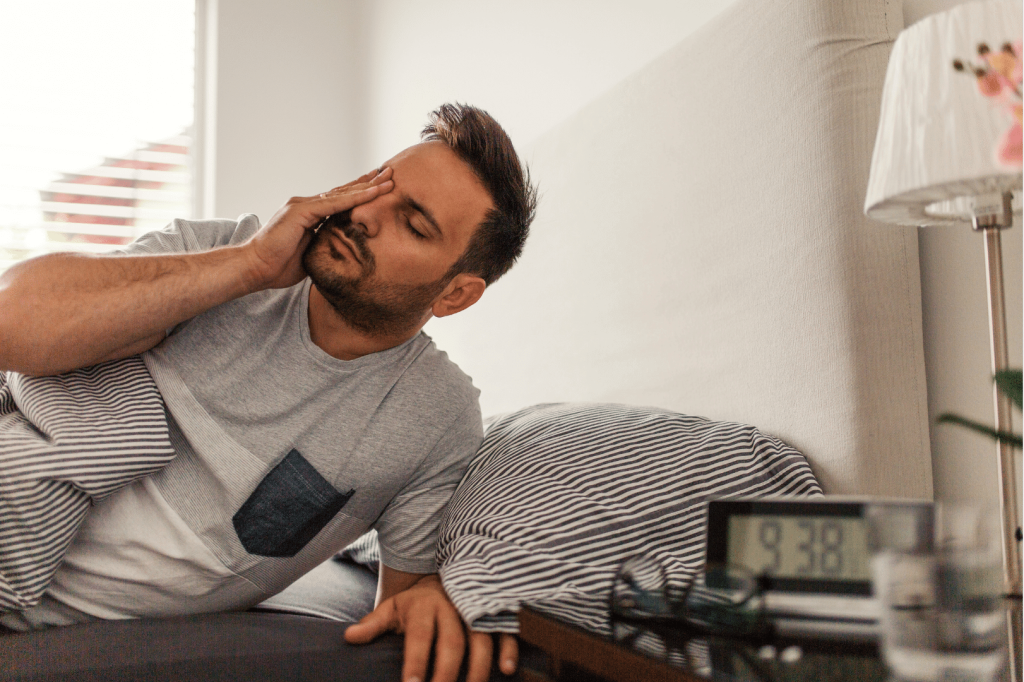
Melatonin Can Shift Your Circadian Rhythm
Because melatonin plays a critical role in regulating the circadian rhythm, supplementing with melatonin can change its phases. It can advance or delay your natural day/night or sleep cycle. This is especially true when you take doses greater than .3mg, the amount your body naturally produces.
In a study of 10 healthy males, participants received either 5 mg of melatonin for 15 days and then a placebo for the next 15 days or vice versa. Taking melatonin first stabilized that participant group’s sleep-wake cycle to 24 hours. In the group that took melatonin second, the sleep-wake cycle was advanced, meaning subjects went to sleep earlier and woke up earlier than their usual cycle when taking the placebo. Therefore, melatonin can shift the sleep-wake cycle.
If you take melatonin too late at night or in the middle of the night, you may change your circadian rhythm by delaying it. In a clinical setting, doctors give melatonin supplements to delay the sleep cycle of those whose natural circadian rhythm is too early.
While shifting your circadian rhythm may benefit you if you are experiencing jet lag or have to work the night shift, it may not be ideal for the typical melatonin user.
Does Melatonin Have Long-Term Effects?
Cancer-Causing
We don’t actually know the long-term effects of taking melatonin supplements. What we do know is that taking it at the wrong time, like during the day, can lead to cancer. Without supplementation, your body will not release melatonin during the daytime. Having melatonin in your body at the wrong time can disrupt your circadian rhythm.
When your circadian rhythm gets disrupted, it could lead to cancer. Every cell in your body has its own clock to maintain cellular function. The circadian rhythm helps keep all of these cells in sync. The disruption of your internal clock also disrupts cell function. When cells are not functioning correctly, it provides the right conditions for tumor growth.
Just like taking melatonin at the wrong times, exposure to light at night disrupts the circadian rhythm and increases your cancer risk. A global data study examined the relationship between light pollution and cancer rates in 158 countries. Nighttime light exposure was associated with all forms of cancer, specifically breast, lung, colorectal, and prostate cancers.
The link between disrupted circadian rhythm and cancer is so strong that working the night shift is now declared “probable carcinogenic.”
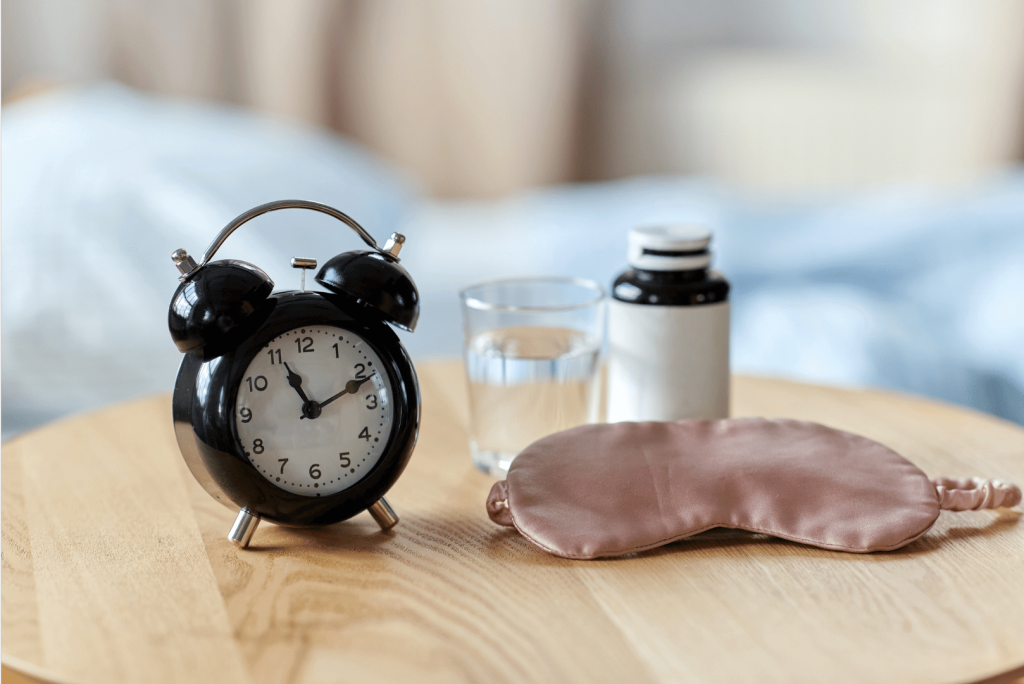
Cancer Protection
Supporting natural melatonin levels can protect against cancers by regulating your circadian rhythm and the internal clock of your cells.
Scientists cultured human prostate cancer cells in a study examining melatonin’s effects on cancer cells’ internal clock. Researchers treated the cells with either 100 μM, 1mM, or 2mM of melatonin. Examination of the cells showed melatonin’s ability to re-synchronize the cells’ inner clock. Therefore, melatonin supplementation can resynchronize the circadian rhythm in prostate cancer cells.
The ability of melatonin to re-establish the circadian rhythm is also beneficial during cancer treatment. In a study of 370 cancer patients, subjects either received chemotherapy and melatonin or chemotherapy alone. Patients who received melatonin not only experienced their tumors shrinking at a higher rate, but they also had a higher 2-year survival rate. Therefore, melatonin is beneficial to cancer patients in treatment.
Maintaining a healthy circadian rhythm is important in preventing and treating cancer, and melatonin is a proven way to help regulate it.
When Should You Take Melatonin?
So, we’ve established that you should not take melatonin regularly to help you sleep. But are there still times when it might be helpful? Absolutely, and especially when you need to regulate your circadian rhythm.
Jet Lag
Traveling across time zones is a quick way to mess up your circadian rhythm. Melatonin to the rescue.
An analysis of 9 clinical trials examined the effects of melatonin on jet lag in airline passengers, airline staff, and military personnel. Melatonin taken near the target bedtime of the destination decreased jet lag when crossing five or more time zones. The benefit was less when flying west as compared to flying east because you get less jet lag when traveling west. While you can take melatonin when traveling across 2-4 time zones, it is usually less necessary.
If you do take melatonin for jet lag, timing and dosage matter. The same analysis as above examined the timing of the melatonin dose. The most effective way to take it was when it got dark on the first day of travel and then at bedtime at the destination for the next few days following arrival.
When it comes to dosage for correcting jet lag, bigger is only sometimes better. In a placebo-controlled study of 320 travelers across 6-8 time zones, participants took either 5 mg fast-release, .5 mg fast-release, 2 mg controlled-release melatonin, or a placebo for four days after their flight.
Both fast-release doses were more effective than the placebo and controlled-release. A dose of 5 mg compared to .5 mg did not make much difference. However, the larger dose did increase the hypnotic effect and sleep quality and reduced the amount of time taken to fall asleep.
However, as mentioned before, larger doses can lead to experiencing more sleepiness during the day. It’s likely better to start at a lower dose.
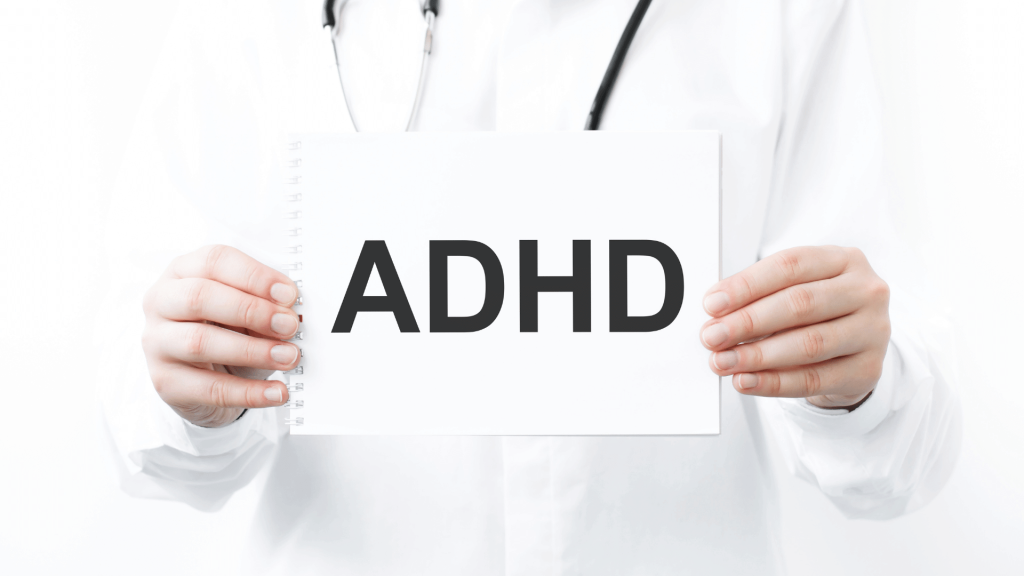
Conditions With Abnormal Circadian Rhythm Or Sleep Architecture, Such As Depression And ADHD
A common characteristic of individuals with depression or ADHD is abnormal circadian rhythm. Those with depression often have a disrupted circadian rhythm, and those with ADHD have a delayed circadian rhythm.
Please note that sleep disturbances are a common feature of these complex disorders. While we believe that sleeping better and normalizing the circadian rhythm will help, melatonin alone is not the cure. Please speak to your doctor regarding diagnosis and treatment for these disorders.
Depression
The circadian rhythm regulates your daily sleep/wake schedule, the rhythm of your hormones, and your body temperature. People with depression often experience changes in all of these rhythms.
Sleep disturbance is the most common circadian rhythm-related complaint. About 90% of depressed patients struggle with it. They also tend to have rapid eye movement (REM) sleep abnormalities. People with major depression usually go into REM sleep more quickly after falling asleep, stay in the REM state longer throughout the night, and have more frequent eye movements while in REM.
Because melatonin serves as an internal cue for the circadian rhythm, should you take it to help with major depression? Scientists aren’t sure. In an analysis of 3 clinical studies investigating the effects of melatonin on depression, melatonin improved sleep quality but not depressive symptoms.
Your circadian rhythm also regulates how your body reacts to different seasons. Your retina sends messages to your pineal gland based on the length of day and night (light and dark) and helps your body adjust accordingly. People who suffer from seasonal affective disorder (SAD) experience depression during the winter when the length of daylight is shorter.
In a study of 10 individuals experiencing winter depression, 5 received .125 mg of melatonin in the afternoon, and 5 received a placebo. Those who took melatonin experienced less depression. Therefore, melatonin may be effective in treating SAD.
ADHD
A delayed circadian rhythm and irregular sleep-wake cycle are common for children and adults with ADHD. Delayed sleep often results in daytime sleepiness exacerbating the ability to focus on tasks. ADHD medications, which are stimulants, may also add to sleep struggles.
Up to 80% of adults with ADHD experience insomnia and delayed melatonin release. In a study of 40 adults with ADHD, some of whom also suffer from insomnia, all participants experienced a delay in their start of sleep and less efficient sleep.
In a literature review of children with ADHD and sleep disturbance, up to 50% of children reported chronic sleep onset insomnia. While research on the use of melatonin in children with ADHD is limited, one study included 24 children with ADHD who took melatonin at the same time as their ADHD medication (methylphenidate). Melatonin improved insomnia in all participants. Therefore, melatonin may help treat insomnia in children with ADHD.
Does melatonin also work for adults? It seems so. In a study of 51 adults with ADHD also suffering from delayed sleep, participants received either three weeks of .5 mg of melatonin with or without bright light therapy or a placebo. Melatonin alone brought on melatonin release about 1.5 hours earlier, and melatonin with bright light therapy brought on melatonin release by almost two hours compared to the placebo group. Both groups also decreased self-reported ADHD symptoms. Therefore, melatonin can successfully treat ADHD sleep disturbance and symptoms.
While there are no other studies specifically testing the use of melatonin in individuals with ADHD, we do know that melatonin is relatively safe and is probably worth a try for sleep-related issues with ADHD.
Alternative To Melatonin
The most important thing to try is to give your body the correct circadian rhythm cues throughout the day. This article covers how.
If melatonin isn’t ideal for regular use, what is? We’ve got you covered. The BiOptimizers sleep system helps you get a great night of sleep by activating 5 critical sleep pathways. It does this by:
- Providing your body nutrients important for natural melatonin production, such as magnesium and vitamin B6
- Supporting your mineral levels to improve the quality of your sleep
- Increasing your GABA levels to create a powerful “relaxation response”
- Helping quiet your brain by increasing your alpha brain waves with L-theanine
- Lowering your body temperature with glycine. This helps you fall asleep faster and get deeper sleep
Instead of taking melatonin, support your body’s natural pathways to get a better night’s sleep.
The Takeaway
Melatonin is a naturally occurring hormone that regulates your circadian rhythm. At times, melatonin may be appropriate to use, such as jet lag, or to treat sleep disturbances that often accompany conditions with poor circadian rhythm. Still, it’s not ideal in the long term and best taken at a low dose close to what your body naturally produces.
References
- Grivas TB, Savvidou OD. Melatonin the “light of night” in human biology and adolescent idiopathic scoliosis. Scoliosis. 2007;2(1):6. doi:10.1186/1748-7161-2-6
- Foley HM, Steel AE. Adverse events associated with oral administration of melatonin: A critical systematic review of clinical evidence. Complement Ther Med. 2019;42:65-81. doi:10.1016/j.ctim.2018.11.003
- Zhdanova IV, Tucci V. Melatonin, circadian rhythms, and sleep. Curr Treat Options Neurol. 2003;5(3):225-229. doi:10.1007/s11940-003-0013-0
- Gooneratne NS, Edwards AYZ, Zhou C, Cuellar N, Grandner MA, Barrett JS. Melatonin pharmacokinetics following two different oral surge-sustained release doses in older adults: Melatonin pharmacokinetics elderly. J Pineal Res. 2012;52(4):437-445. doi:10.1111/j.1600-079X.2011.00958.x
- Menczel Schrire Z, Phillips CL, Chapman JL, et al. Safety of higher doses of melatonin in adults: A systematic review and meta-analysis. J Pineal Res. 2022;72(2):e12782. doi:10.1111/jpi.12782
- Ferracioli-Oda E, Qawasmi A, Bloch MH. Meta-analysis: melatonin for the treatment of primary sleep disorders. PLoS One. 2013;8(5):e63773. doi:10.1371/journal.pone.0063773
- Braam W, van Geijlswijk I, Keijzer H, Smits MG, Didden R, Curfs LMG. Loss of response to melatonin treatment is associated with slow melatonin metabolism: Loss of response to melatonin treatment. J Intellect Disabil Res. 2010;54(6):547-555. doi:10.1111/j.1365-2788.2010.01283.x
- Ferlazzo N, Andolina G, Cannata A, et al. Is melatonin the cornucopia of the 21st century? Antioxidants (Basel). 2020;9(11):1088. doi:10.3390/antiox9111088
- Reiter RJ, Mayo JC, Tan DX, Sainz RM, Alatorre-Jimenez M, Qin L. Melatonin as an antioxidant: under promises but over delivers. J Pineal Res. 2016;61(3):253-278. doi:10.1111/jpi.12360
- Zarezadeh M, Barzegari M, Aghapour B, et al. Melatonin effectiveness in amelioration of oxidative stress and strengthening of antioxidant defense system: Findings from a systematic review and dose-response meta-analysis of controlled clinical trials. Clin Nutr ESPEN. 2022;48:109-120. doi:10.1016/j.clnesp.2022.01.038
- Winiarska K, Fraczyk T, Malinska D, Drozak J, Bryla J. Melatonin attenuates diabetes-induced oxidative stress in rabbits. J Pineal Res. 2006;40(2):168-176. doi:10.1111/j.1600-079X.2005.00295.x
- Korkmaz A, Reiter RJ, Topal T, Manchester LC, Oter S, Tan DX. Melatonin: An established antioxidant worthy of use in clinical trials. Mol Med. 2009;15(1-2):43-50. doi:10.2119/molmed.2008.00117
- Paul MA, Gray G, Kenny G, Pigeau RA. Impact of melatonin, zaleplon, zopiclone, and temazepam on psychomotor performance. Aviat Space Environ Med. 2003;74(12):1263-1270
- Middleton B, Arendt J, Stone BM. Complex effects of melatonin on human circadian rhythms in constant dim light. J Biol Rhythms. 1997;12(5):467-477. doi:10.1177/074873049701200508
- American thoracic society patient education| information series Thoracic.org. Accessed October 2, 2022. https://www.thoracic.org/patients/patient-resources/resources/delayed-sleep-phase-syndrome.pdf
- Lewy AJ, Ahmed S, Jackson JML, Sack RL. Melatonin shifts human orcadian rhythms according to a phase-response curve. Chronobiol Int. 1992;9(5):380-392. doi:10.3109/07420529209064550
- Savvidis C, Koutsilieris M. Circadian rhythm disruption in cancer biology. Mol Med. 2012;18(1):1249-1260. doi:10.2119/molmed.2012.00077
- Al-Naggar RA, Anil S. Artificial light at night and cancer: Global study. Asian Pac J Cancer Prev. 2016;17(10):4661-4664. doi:10.22034/apjcp.2016.17.10.4661
- Erren TC, Morfeld P, Groß JV, Wild U, Lewis P. IARC 2019: “Night shift work” is probably carcinogenic: What about disturbed chronobiology in all walks of life? J Occup Med Toxicol. 2019;14(1):29. doi:10.1186/s12995-019-0249-6
- Jung-Hynes B, Huang W, Reiter RJ, Ahmad N. Melatonin resynchronizes dysregulated circadian rhythm circuitry in human prostate cancer cells: Melatonin and the circadian clock. J Pineal Res. 2010;49(1):60-68. doi:10.1111/j.1600-079X.2010.00767.x
- Herxheimer A, Petrie KJ. Melatonin for preventing and treating jet lag. Cochrane Database Syst Rev. 2001;(1):CD001520. doi:10.1002/14651858.CD001520
- Suhner A, Schlagenhauf P, Johnson R, Tschopp A, Steffen R. Comparative study to determine the optimal melatonin dosage form for the alleviation of jet lag. Chronobiol Int. 1998;15(6):655-666. doi:10.3109/07420529808993201
- Tsuno N, Besset A, Ritchie K. Sleep and depression. J Clin Psychiatry. 2005;66(10):1254-1269. doi:10.4088/jcp.v66n1008
- Palagini L, Baglioni C, Ciapparelli A, Gemignani A, Riemann D. REM sleep dysregulation in depression: state of the art. Sleep Med Rev. 2013;17(5):377-390. doi:10.1016/j.smrv.2012.11.001
- Shaffery J, Hoffmann R, Armitage R. The neurobiology of depression: perspectives from animal and human sleep studies. Neuroscientist. 2003;9(1):82-98. doi:10.1177/1073858402239594
- De Crescenzo F, Lennox A, Gibson JC, et al. Melatonin as a treatment for mood disorders: a systematic review. Acta Psychiatr Scand. 2017;136(6):549-558. doi:10.1111/acps.12755
- Honma K, Honma S, Kohsaka M, Fukuda N. Seasonal variation in the human circadian rhythm: dissociation between sleep and temperature rhythm. Am J Physiol. 1992;262(5 Pt 2):R885-91. doi:10.1152/ajpregu.1992.262.5.R885
- Lewy AJ, Bauer VK, Cutler NL, Sack RL. Melatonin treatment of winter depression: a pilot study. Psychiatry Res. 1998;77(1):57-61. doi:10.1016/s0165-1781(97)00128-5
- Lunsford-Avery JR, Kollins SH. Editorial Perspective: Delayed circadian rhythm phase: a cause of late-onset attention-deficit/hyperactivity disorder among adolescents? J Child Psychol Psychiatry. 2018;59(12):1248-1251. doi:10.1111/jcpp.12956
- Owens JA. Sleep disorders and attention-deficit/hyperactivity disorder. Curr Psychiatry Rep. 2008;10(5):439-444. doi:10.1007/s11920-008-0070-x
- Van Veen MM, Kooij JJS, Boonstra AM, Gordijn MCM, Van Someren EJW. Delayed circadian rhythm in adults with attention-deficit/hyperactivity disorder and chronic sleep-onset insomnia. Biol Psychiatry. 2010;67(11):1091-1096. doi:10.1016/j.biopsych.2009.12.032
- Tjon Pian Gi CV, Broeren JPA, Starreveld JS, Versteegh FGA. Melatonin for treatment of sleeping disorders in children with attention deficit/hyperactivity disorder: a preliminary open label study. Eur J Pediatr. 2003;162(7-8):554-555. doi:10.1007/s00431-003-1207-x
- van Andel E, Bijlenga D, Vogel SWN, Beekman ATF, Kooij JJS. Effects of chronotherapy on circadian rhythm and ADHD symptoms in adults with attention-deficit/hyperactivity disorder and delayed sleep phase syndrome: a randomized clinical trial. Chronobiol Int. 2021;38(2):260-269. doi:10.1080/07420528.2020.1835943
